The Balkan hideaway for millions in fees from contracts for the Best FIFA Men’s Player 2018
– Millions of Euros in fees for the business of Belgium-based Vladica Lemić – the agent of Luka Modrić – were paid to a company in Bosnia & Herzegovina, owned by his younger brother Zoran Lemić.
– Corporate tax in Bosnia & Herzegovina is only ten per cent, half of the EU average
– Lemić is also involved in a backdated contract in a player transfer to evade the FIFA ban on Third-Party Ownership in 2015
Moscow, 15 July 2018. The final match of World Cup 2018 was a glorious day for football agent Vladica Lemić. Despite Croatia’s loss to France, his client Luka Modrić won the prize for best player of the tournament, and bagged the prestigious ‘Golden Ball’ award. The Real Madrid midfielder saw his trophy cabinet fill up when he was named UEFA Men’s Player of the Year and Best FIFA Men’s player, ending the ten-year old duopoly of Cristiano Ronaldo and Lionel Messi.
These awards offered new opportunities for Vladica Lemić, the secretive agent of Luka Modrić. A 52 year-old Serb born in Zagreb, Lemić was looking to cash in on moving football’s most valuable asset to Inter Milan from Real Madrid, where Modrić has played since 2012.
However Lemić is not a registered FIFA agent and usually operates in the shadows using proxy FIFA-registered intermediaries.
Nevertheless this time he was splashed across the European sports media. Rumors, tip-offs and leaks appeared surrounding Modrić’s intentions, the Croat’s salary at Los Blancos and financial details of his possible transfer value.
But the Spanish side were reluctant to play ball. After Cristiano Ronaldo’s €112 million move to Juventus, Real Madrid could not risk losing another galáctico. In the end, Modrić stayed with Real Madrid after the club agreed to a massive salary rise, and the Italian transfer did not occur. So there was no multi-million agent fee for Vladica Lemić.
However, according to Football Leaks documents, obtained by Der Spiegel and shared with Nacional and other partners in European Investigative Collaborations (EIC), Vladica Lemić highly probably received another fee.
This was for the renewal of Modrić’s employment contract, a sum he had received on two previous occasions. It is also highly possible that this agent fee was banked in Bosnia & Herzegovina, where companies pay only ten per cent in corporate tax rate. This business-friendly levy compares to a European Union average of 21 per cent, and 33 per cent in Belgium, where Lemić is resident.
Serb Vladica Lemić has an ancestry from the small village of Jelićka, near Banja Luka in today’s Republika Srpska, an autonomous Serbian-majority region within Bosnia & Herzegovina. From this location, Lemić has been using his younger brother Zoran Lemić’s Bosnia-registered company to carry out football deals. Lemić has been indirectly invoicing European clubs, and shifting agent fees and profits to a country with low tax rates.
Another man in the scheme is Montenegrin Predrag Pedja Mijatović, an ex-striker for Partizan, Real Madrid, Valencia and Fiorentina, and Director of Football at Real Madrid between 2006 and 2009. The retired footballer is now living in Spain, where he is facing prosecution in a 603,000 Euro tax fraud case.
Emails reveal that Mijatović was working with Vladica Lemić during player transfer negotiations with football clubs.
When an agreement was reached between a club and Lemić, and a player was due for a transfer or employment contract renewal, the club was invoiced by the agent’s younger brother Zoran Lemić’s company, which processed his sibling’s fees.
Vladica Lemić and Predrag Mijatović were not paid one euro for their work by football clubs, so it is our understanding they paid no taxes in their countries of residence for these transfers, Belgium and Spain. The two intermediaries did not reply to questions.
This practice, which is described by Belgian tax expert as “a typical case of tax fraud”, has been expanding since 2014 according to the Football Leaks documents. Meanwhile, the profits from the Bosnian company, Top Sports Consulting, owned and managed solely by younger brother Zoran Lemić, are huge.
In four years between 2014 and 2017, Top Sports Consulting turned over €32 million, mostly from football transfers, and banked €23 million in profit after taxes. This is a booming business with a 73 percent net profitability.
In 2016, with only seven employees, Top Sports Consulting was fifth on the list of Republika Srpska’s companies with the highest operating profit, joining local oil, telecom, public firms and construction companies who employ thousands.
Available documents, Nacional has reviewed, show that at least €8.8 million in contracts were signed for football transfers during these four years by Zoran Lemić, and emails prove that Vladica Lemić and Predrag Pedja Mijatović were personally involved in negotiations and arranging contracts worth at least €4.4 million, which ended up in the bank account of the younger brother’s company.
Shifting millions in fees for Modrić contract renewal
Modrić started his professional playing career in Croatia’s Dinamo Zagreb in 2003 and, after impressing as a creative midfielder with a solid goalscoring record, the Croat was courted by Barcelona, Arsenal and Chelsea, before landing a transfer to Tottenham Hotspur in 2008.
However during this transfer from Zagreb to London, gross crimes were committed by his first agent Zdravko Mamić. The Croatian impresario was convicted to 6.5 years in prison in June 2018 for funneling half of the €21 million transfer fee from Dinamo Zagreb to his private bank accounts. Mamić escaped to Bosnia & Herzegovina days before the verdict, and announced appeal against the decision at the Supreme Court.
But Mamić was not involved in Modrić’s mega €35 million transfer from Spurs to Real Madrid in 2012. Football Leaks documents show that Modrić’s new agent was the Croat Davor Ćurković, who was licensed as an official FIFA intermediary by the Serbian Football Association.
On 10 May 2012 Ćurković signed a contract with a Belgian company called reINA BVBA to pass his agent rights on Modrić transfer. In 2010 this company was founded in Antwerp. Here is where the link becomes interesting. In the suburbs of this Belgian city, Vladica Lemić has had a permanent address since the 1990s. Also, half of the shares in reINA BVBA were owned by Lemić, 40 per cent by his wife and daughters, and ten per cent by Dejan Mitrović, another FIFA official agent.
According to this contract Ćurković was “the official player agent of Luka Modrić” and he “agreed to transfer his agent rights/commission of any transfer of Luka Modric from Tottenham Hotspur to any other club.”
“In consideration to the services provided by reINA to the agent, the agent shall let reINA BVBA collect the total of the commission of any transfer of Luka Modric from Tottenham Hotspur, to any other club, by sending an invoice for their services,” article 1 of this secret contract says.
The €35 million transfer contract between Tottenham and Real Madrid was signed on 26 August 2012. A day later Los Blancos general manager Jose Angel Sanchez signed another secret agent contract with Lemić and Davor Ćurković, both on behalf of the company reINA.
This contract brought Lemić’s Belgian company €2 million in agent fees for “negotiation and execution of labor and image rights contract” between Luka Modrić and Real Madrid. The contract also includes the negotiations for the transfer of federative rights of Luka Modrić from Tottenham to Real.
In 2012 Luka Modrić founded Luxembourg based company Ivano, where 15 per cent of his salary from Real Madrid was hidden in the form of image rights, as revealed by Croatian news magazine Nacional in Football Leaks in December 2016. Due to this expose, in September 2018, Modrić paid €1.4 million in additional taxes and fines to the Spanish tax administration, and accepted an eight-month suspended prison sentence in a settlement.
But correspondence about the costs of setting up ‘Ivano’ reveals that Vladica Lemić and Davor Ćurković were not the only Modrić agents in this transfer. An email sent by Madrid-based law office Senn Ferrero to Luxembourg tax advisors ATOZ on 16 July 2013 shows who was the real agent.
The Spanish lawyers were arguing over additional payments for their services, which should have been paid by ATOZ and Modrić. While listing additional work in Spain during the arrangement of hidden payments of image rights to Modrić’s Luxembourg company, they wrote under point 3: “Meeting with Pedja Mijatovic to clarify the terms hired (was the agent of the deal).”
This indicates Pedja Mijatovic had a significant role in the contract negotiations.
When approached by Nacional for comment, both Mijatović and Senn Ferrero declined to comment didn’t respond.
Therefore it appears that both former Director of Football of Real Madrid Mijatović and Vladica Lemić were agents in Modrić’s transfer from Tottenham to Real in 2012, but were using the FIFA-registered Davor Ćurković as an intermediary to meet FIFA regulations.
The €2 million in agent fees ended up in the Antwerp-based company reINA and, in our understanding were taxed in Belgium, but the situation becomes more interesting two years later.
In 2014, when Luka Modrić received his first pay rise at Real Madrid, Vladica Lemić shifted the destinations of his fees from Belgium to Bosnia & Herzegovina.
The first employment contract brought €5.6 million annually without bonuses to Modric, until the end of the 2016/17 season. On top of this were the secret payments of image rights to his Luxembourg shell company of almost €1 million. This totalled €6.6 million annually.
But on 20 August 2014, the midfielder signed a new employment contract with Real Madrid, which brought him a 50 percent higher salary, or €8.4 million annually without bonuses, with a contract valid until the end of the 2017/2018 season. Also the image rights, paid separately, increased to €1.5 million per year. This means his salary increased to €10 million annually.
However more than a month later, on 30 September 2014, Real Madrid signed a secret agent contract with Top Sports Consulting, solely owned by younger brother Zoran Lemić and registered in the city of Banja Luka, the capital of the Serbian entity within Bosnia & Herzegovina.
The fee for the Modrić contract renewal was €2.4 million, paid in three installments of €800,000 through Slovenian state-owned Nova Ljubljanska Banka, which has had serious problems with anti money laundering compliance.
But how did Zoran Lemić appear all of a sudden in the renewal of the employment contract for Luka Modrić?
Emails exchanged a day before signing, on 29 September 2014, between Vladica Lemić and the director of Real Madrid, Jose Angel Sanchez, confirm Vladica introduced his younger brother to sign the multi-million deal with club, but that Vladica himself negotiated the renewal contract with Modrić.
Firstly, Sanchez wrote to Vladica: “My friend, this is the original contract as the fee agreed and the payment terms (3 installments) cannot be improved. I am sorry for this, but please bear in mind that this is quite an unusual fee for the Club´s standards. Thank for your continuous help, and thank you especially for this help in renewing Luka. He is key for us.”
In response, one hour later under the subject heading “Re: Agent contract” Vladica asked for changes in the contract. Instead of four installments as written in contract Sanchez sent him, the agent fee should be paid by Real in three, he suggested. But there was another more significant proposal: “2. few weeks ago I sent to you details of company represented by my brother (Zoran LEMIC), to make the agreement with… instead of his, in the contract you put it my name…”
At the end of this email, Vladica asked Sanchez to write the contract in English and to send this to an email address used by Zoran Lemić, as director of Top Sports Consulting, which he listed at the end of email. The last request was to add Vladica in a “copy”.
Many other emails exchanged in November 2014 between Zoran Lemić and Real Madrid further confirm that, besides his older brother Vladica, Predrag Pedja Mijatović was also an influential collaborator in the contract renewal.
On 17 November 2014, Zoran Lemić asked Real Madrid administration officials and its general manager Jose Angel Sanchez to send him an English version of the new contract.
A response from a secretary at the club to Zoran Lemić states; “Sorry, but as I explained Pedja yesterday it is not possible, as the Spanish version is the only one valid. Please remember send us the original of the documents you emailed me yesterday.“ This reveals Pedja Mijatović’s involvement in this contract renewal.
Zoran Lemić emailed Real Madrid the next day again, indicating that an English version of signed contracts should exist: “Please check in your archive. A last contract for Luka was also in English version (Real signed with my brother’s Belgium company). Also for [French footballer Lassana] Diarra to Anzhi [Anzhi Makhachkala, Russian club] was signed with my company in English version. And finally I signed both of contract (English and Spanish) versions with Jose Angel Sanchez and it is normally to get both of contract.”
“Our lawyers say that image contracts can be in English, but not others.. We can’t have two versions (English and Spanish), because only one of them, in this case, Spanish version, is the only one valid,” a response from Madrid followed.
How did this discussion about a €2.4 million worth contract end? Real Madrid’s secretary, who was in communication with Zoran Lemić forwarded all emails thread to two colleagues in administration and added: “This is what I sent yesterday. I received Pedja’s now ..”
Football Leaks documents show that Pedja Mijatović emailed the same Real Madrid official late in the evening a day before with an attached English version of a contract between reINA and Real Madrid signed in 2012 with the following text: “This is the old contract that Vlado and his brother Zoran sent me. As you can check this is in English and signed by everyone. They need you to do the same with the new contract.”
The next morning a secretary forwarded Mijatović’s email to the same two colleagues with the notice: “I give up… Can answer any of you?”
These emails reveal Predrag Pedja Mijatović and the Lemić brothers were involved in the 2014 renewal of Modrić’s employment contract, where the payment for their services went solely to the Bosnian-based company.
But the secretive Serb and Montenegrin agents are always around whenever Modric’s cachet rises. In August 2016, Modrič received another pay rise at Real Madrid, as did his colleagues on the pitch. This was a gross increase of 50 per cent to €12.7 million annually without bonuses, until the end of the 2019/20 season.
The increase the players pocketed was, in reality, lower due to tax investigations against the players’ image rights. This meant Real Madrid decided to include the 15 per cent image rights payments into the basic employment contracts of players in August 2016. So the real salary rise was from €10 million to €12.7 million or 27 percent.
The midfielder’s wage became a subject of controversy in August 2018, when Vladica Lemić and Predrag Mijatović tried to push Modrić’s transfer to Inter Milan. In the new club, the Italian and Spanish media published that Modrić would receive from Inter “10 million Euro annually with 1.5 million bonuses if he will play in Serie A.”
Why would a player of Modrić’s stature, at the height of his career, sign for lower salary? There is no logic.
In Modrić’s contract renewal for 2016, there was a large bonus for Zoran Lemić and his covert partners Vladica and Mijatović.
According to the agent contract signed between Real Madrid and Top Sports Consulting on 2 July 2016 they would receive an €1.5 million agent fee for their services in this contract renewal.
All the money ended again in Republika Srpska, and not a single Euro was paid directly from Real to Vladica and Mijatović. But internal emails in Real Madrid again reveal, that Zoran Lemić is not Modrić’s real agent.
On 4 November 2016, a few months later, administration officials of Real Madrid were setting up VIP Presidential boxes for an impending football match. One secretary informed the others that general manager Sanchez asked for three persons. The first two were: “1) Vlado Lemic (Representante Modric) 2) Pedja.”
Also in emails exchanged in 2017 about new VIP tickets for Real Madrid matches, which Vladica usually attended with Mijatović, it was always stated beside name Vladica Lemić – (Representante Modric). Not a single email reveal his younger brother Zoran as Modrić’s agent.
For years Real Madrid has labeled Vladica Lemić as Modrić’s agent, law company Senn Ferrero mentioned Mijatović as real agent of Modrić transfer from Tottenham, and both appear in many internal emails as Modrić’s agents.
But what was a real role of Zoran Lemić? He collected €3.9 million in his low tax company for work, mostly undertaken by his older brother Vladica and Mijatović, who were not – officially – paid by Real Madrid for their agent services at all.
Lucrative agent fees and network of proxies
This can be additionally explained using the example of the transfer of Montenegrin player Nikola Vujnović, who joined the Spanish club Villarreal in 2015. But to understand a mode of operations of Vladica Lemić, other strange football transfers are worth examining.
Some media have labeled Vladica Lemić as the right hand man of Russian billionaire and Chelsea owner Roman Abramovich. Football Leaks documents confirm he is close to Chelsea and was even paid a flight ticket by a company registered in British Virgin Islands, with the assistance of the Chelsea director Marina Granovskaia. Lemić worked closely with PSV Eindhoven to bring in Serbian players, and struck up a good relationship with PSV’s sporting director Frank Arnesen. But the Serb agent was expelled from PSV Eindhoven after a big scandal in 2008, when a new club management accused him of pocketing profits from his deals for PSV. Nevertheless he continued to work with Frank Arnesen, then sports director of Chelsea and Hamburger SV and remains a top-tier football agent today. But Vladica Lemić is also well connected to many clubs in the former Yugoslav region and was the real agent during transfers of young talents to many European football clubs.
One strange transfer involves the 18 year-old Dinamo Zagreb talent Robert Murić to Ajax in July 2014, where agent fee for the negotiation of the player’s employment contract worth on average €325,000 per season was an astonishing €2.4 million, which ended up in the Bosnian company of his brother Zoran Lemić. And this was a free transfer.
Similar transfer happened in July 2013, when Serbian player Miralem Sulejmani moved from Ajax to Benfica. Another company managed by the younger brother Lemić, called Top Pro Sport Investment, registered in the low-tax country of Luxembourg, received €4 million in agent fee from Portuguese club Benfica, in a free transfer again.
In July 2016, Zoran Lemić was the official agent of another player in the Croatian national team which reached the World Cup Finals 2018 in Russia. One of the best Croatian defenders, Šime Vrsaljko, left the Italian club Sassuolo for Atletico Madrid. According to two unsigned drafts of agent’s contract between Zoran Lemić as representative of Bosnian company Top Sports Consulting and the president of Atletico Miguel Angel Gil Marin, the agent fee was supposed to reach €1 million and additional bonuses. The FIFA transfer report reveals the agent of Sassuolo, as a club releasing the player, was Italian FIFA official agent Giuseppe Riso, yet another proxy in Vladica Lemić’s network. Riso’s name reappeared in the Italian press this summer when he was involved in an attempt to transfer Luka Modrić from Real Madrid to Inter Milan. The transfer report also shows Vrsaljko’s transfer fee was €14.25 million with €3.8 million in bonuses. But according to last unsigned draft, dated 20 June 2016, the Bosnian company would be entitled to an additional bonus worth €400,000, so €1.4 million combined. It might not be that surprising to find that Vrsaljko has been on loan since August 2018 – to Inter Milan.
Inside working of Lemić group revealed and backdated agreement to evade FIFA ban
But let’s return to Nikola Vujnović and the negotiations behind his transfer in February 2015, when he just turned 18 years old. As a Montenegrin he played for the Serbian club Radnički Obrenovac in the small town of Obrenovac with a population of 25,000, south-west of Belgrade, which played in the third tier of the Serbian league. When his agent Vladica Lemić established contact with major Spanish club Villarreal, a huge opportunity opened for the young player.
According to Football Leaks documents, the first email was sent on 21 February 2015 late in the evening by managing director of Villarreal Fernando Roig Negueroles, son of Spanish billionaire and owner of the club Fernando Roig Alonso. The recipient of email was Predrag Pedja Mijatović. Villarreal sent an offer for Vujnović, attached in the files under the names ‘For Pedja 2’ and ‘Contrato Nicola 2’.
Twenty minutes later Mijatović forwarded this offer to Vladica Lemić’s email address.
The following day, late in the afternoon, Vladica Lemić answered: “Hi Fernando, here is our remarks and answer on your proposal for player Nikola Vujnovic and agents” and listed his counterproposal. “We believe that this are good and correct conditions for all parties to start our collaboration,” he ended his message. He added also his younger brother Zoran Lemić as recipients of this email. Zoran’s email address was from the Bosnia-based Top Sport Consulting company.
In Vladica’s counter-proposal sell-on fees for Vujnović next transfer were also included, indicating a third-party ownership of economic right of a player, which FIFA has banned since January 2015.
For the next two days exchanges between Fernando Roig Negueroles and Vladica Lemić continued intensively, with Mijatović and brother Zoran in CC.
On 24 February 2015 in the morning Roig warned the Serb about the FIFA ban: “There’s one thing that we don’t know how to sort it out. We have to look for the way. It’s the future percentages since it’s forbidden by FIFA since January.” But Vladica sent him a possible solution 15 minute later: “We can put sell on % as agent fee because we brought player free of any payment to some clubs or can be agreement with football academy we have in Serbia, where mother of Nikola is officially working, and where Nikola had individual trainings.”
This indicates a workaround of the issue, and Roig then suggested Vladica to discuss this issue with Alvaro Esteso Masso, director of finance at Villarreal.
During the same day Vladica forwarded to Villarreal an email of his younger brother Zoran Lemić with nine documents about the player Nikola Vujnović, needed for his registration and visa. Zoran received these documents from an email of yet another proxy FIFA official agent, Nebojša Čučković.
Čučković was involved in a scandal connected to transfer of Serbian player Slobodan Rajković from Germany’s SV Darmstadt 98 to Italian club Palermo in 2016, together with Giuseppe Riso, Davor Ćurković, Dejan Mitrović and Zoran Lemić, all proxy FIFA agents working with Vladica Lemić.
According to the local press they collected almost €5.5 million in agent fees from the Sicilian club, of which at least four million were transferred to Bosnian company of Zoran Lemić. Palermo-based sport media named the group the “Slavic Triad”.
But another issue appeared. Esteso Masso was negotiating the Vujnović transfer further with Vladica Lemić, who sent him on 24 February 2015 at 19:15 a few documents under title: “License, VAT, Passport”. Vladica received these documents from a Top Sports Consulting corporate email address.
The documents obviously surprised the Spanish finance director. So the next day Esteso Masso responded:
“Vlado, I suppose this documents belongs to the person that is going to sign in the name of the Company. Am I right? If so, we can´t see the passport, please send it again. We still need the deed of power of attorney of the person who signs and the article of association of the company (this document is done when the company begins to work and sets the activities that is going to do).”
Vladica Lemić answered soon: “Morning Alvaro, I just sent to you all documents you asked me with copy of the passport of the person who will sign agents agreement, my brother Zoran Lemic.”
These emails confirm that Zoran Lemić’s role was mostly a technical matter, such as organizing administrative issues during transfers and, of course, signing contacts and collecting agent’s fees.
Then Esteso Masso discussed with another colleague at Villarreal the issue of how to arrange the signing and they quickly found a solution. “A scouting agreement” whereby the Bosnian company will source young players from Serbia, Croatia, Montenegro and Macedonia in order to attract them to the club.
On 27 February at noon, Esteso Masso sent Vladica Lemić the following message:
“Vlado. Has you checked the company´s document? I would like to sign it today.”
Vladica responded quickly: “Our lawyer is checking scouting contract. Will be some small changes but not big deal…”
Then, once again, the email correspondence shows a chain of command in this group. On the same day Dejan Rakić, a Sarajevo based lawyer, who was also a lawyer for Top Sports Consulting, forwarded his corrections to the “scouting agreement” to Zoran Lemić, who forwarded it to Vladica Lemić, who finally sent these corrections to the agreement to Villarreal on 27 February, at 14:28.
This Scouting agreement is a word document which was last modified by “Dejan” at 14:22 on the same day.
The signing of the transfer was near. Three hours later, at 17:34, Vladica Lemić sent an agreed copy of the Scouting agreement, signed by Zoran Lemić in the name of Top Sports Consulting to Estesa Masso. Vladica received this signed copy by email from his brother.
The Scouting agreement brought €250,000 in agent fees to Zoran’s company Top Sports Consulting. It included sell-on fees for the case if Nikola Vujnović would be transferred from Villarreal to a third club. The percentage of additional sell-on fees to be received by Zoran Lemić varied from 15 percent to 50 percent depending on the value of next transfer. But if he would be transferred, for example, for 23 million Euro, the Bosnian company would earn €5.7 million from this sum.
However, this agreement was signed on 27 February 2015, two months after FIFA banned third party ownership on economic rights of football players on 1 January 2015.
How did the Lemić brothers and Villarreal officials solve this problem, which they discussed in previous emails? The solution was easy. A copy of the scouting agreement signed by Zoran Lemić and all previous drafts have a date of 30 September 2014, a date few months before the FIFA ban. These emails and last corrections of agreement confirm the scouting agreement was backdated with an intention to bypass the FIFA ruling.
All persons involved declined to didn’t answer questions on the backdated agreement. Only the lawyer Dejan Rakić responded that a contract was signed between two parties, made on their own will and according to their mutual agreement. “In that case please understand that we are not allowed (according to regulations and lawyers etics) to provide you with any information regarding bussiness relations of other parties.”
Vujnović’s career soon fell into trouble and Villarreal director Fernando Roig Negueroles emailed a few months later, on 22 June 2015, Vladica Lemić and either Zoran Lemić or Mijatović.
“Hi both of you, As we have been talking on the phone with Pedja, we decided to keep Nikola with us. However, we haven’t been able to watch the player as much as we would have wanted since it took a few longer than what we thought to get the permit, after he went with the national team and he came back with an injury. Therefore I’d like to make a slight change on the agreement if you accept it. If not we will do it anyway.”
The response was a counter-proposal which came three hours later. It was sent from Vladica Lemić’s email address, with Zoran Lemić and Predrag Pedja Mijatović in CC.
Email ended with: “Regards, Pedja, Zoran, Vlado”
At the end they settled the issue with an appendix to the scouting agreement which brought Top Sports Consulting €500,000 for Nikola Vujnović’s transfer. And what happened to his sporting career? According to Transfermarkt.com he spent years in Villarreal C and progressed to Villarreal B in July 2018, when he was 21 years old. He was on the bench for only one match this season, but he didn’t play a single minute. It seems his professional career is in jeopardy.
Massive shift of profits to Bosnia and Herzegovina
According to analyses of eight agents’ contracts signed by reINA, the Belgian company 90% owned by Vladica Lemić since 2014, and eight agents’ contracts signed by Top Sports Consulting, solely owned by Zoran Lemić, which are available in Football Leaks, a significant shift of contracts, fees and thus revenues and profits happened between 2014 and 2017.
In the three years from 2011 to 2013 the Belgian company signed contracts worth €6.6 million in agent fees, while the Bosnian company signed for €1.9 million over the same period. But in the next four years from 2014 to 2017 the situation is reversed. The Belgian reINA earned only €1.7 million, while the Bosnian Top Sports Consulting gained €8.8 million in agent fees.
Emails from the Luka Modrić contract renewals and Nikola Vujnović transfer reveal that Vladica Lemić was the main person who negotiated and agreed these deals, with Predrag Mijatović collaborating, and the younger brother Zoran Lemić signing and earning the final amount, on paper.
A reason for this probably lies in corporate tax rates. During this period, the Belgium corporate tax rate was 34 percent, while in Republika Srpska, the Serbian entity of Bosnia & Herzegovina, this was ten percent.
Annual accounts of both companies show that reINA posted from 2011 to 2017 cumulatively €1.85 million profit before taxes and paid €834,826 to the Belgian budget with €1.02 million in profits after taxes over seven years. In the last four years the profits and taxes were lower. It posted €520,285 in profits before taxes, and paid €305,992 in taxes to the Belgian budget, with only €214,293 in profit after taxes between 2014 and 2017.
However, the annual accounts for Top Sports Consulting show a very different level of profitability. As accounts for the period 2011 to 2013 are not accessible, we analyzed only available financial statements for the period 2014 to 2017, the exact period when contracts were shifted from the Belgian to the Bosnian company.
In these four years Top Sports Consulting posted €26.1 million in profits before taxes. With only €2.6 million in taxes paid, it had €23.5 million of profits after taxes. This is a massive amount in a poor country like Bosnia & Herzegovina. It is no surprise that Zoran Lemić has become an elite member of society in the Serbian entity of Republika Srpska, which is riddled with organized crime and corruption.
On 25 July 2017, for example, Zoran Lemić was one of three godfathers during the sanctification of an orthodox monastery in the town of Osovica, which was led by the Patriarh of Serbian Orthodox Church Irinej. President of Republika Srpska, strongman and close ally of Vladimir Putin, Milorad Dodik and Prime Minister Željka Cvijanović were standing at the front beside Zoran Lemić during this religious ceremony. Zoran Lemić didn’t reveal how much he donated to church for this privilege.
“A typical case of tax fraud”
As Vladica Lemić’s permanent address during all these years is in Belgium, he is a Belgian tax resident. Also the company reINA, owned by Vladica Lemić and managed by him from May 2010 to January 2018, is registered in Belgium. Since 2014 it has lost many agent fees worth millions of euros which were arranged by its owner and manager Vladica Lemić, for the benefit of another company Top Sports Consulting, owned by his brother Zoran. Documents reveal that Vladica Lemić was working for free and without any payments from the football clubs, to allow his brother’s company to profit. This is not allowed by law. Millions in taxes were lost to Belgium because these contracts shifted profits abroad, in what appears to be tax fraud.
If we only take into account the contracts Luka Modrić and Nikola Vujnović signed with Top Sports Consulting, worth €4.4 million combined, the potential tax loss for Belgium budget is €1.5 million.
But if Vladica Lemić had a similar leading and managing role also in other contracts signed by his younger brother, what is highly possible, then tax evasion may be much higher.
Lawyer of Belgian firm Bloom Law Denis-Emmanuel Philippe, tax professor at University of Liège, analyzed anonymized findings and calculations of this investigation and confirmed this might be a tax fraud.
“In principle, if the consultancy services have been rendered out of Belgium by Company X (through its director, older Brother A), the consultancy fees would need to be taxable in Belgium at the corporate income tax rate of 33,99% at the level of Company X,” he wrote.
“In the case at hand, the question arises whether the profits derived from the consultancy services have been artificially shifted to a low-tax country, i.e. Company Y in Bosnia. Such would be the case if the key people, which create the added value with respect to the consultancy services rendered, i.e. Brother A, is a Belgian tax resident and performs the services out of Belgium.
According to Belgian tax law, contractual arrangements agreed between related parties (between Brothers A and B) should reflect economic reality. If this condition is not fulfilled, the Belgian tax authorities could try to challenge such a profit shifting, by invoking several anti-abuse provisions which aim at combating artificial profit shifting,” Philippe explained.
“Such a situation is a typical case of tax fraud: reality does not match with the contractual arrangements. If Brother A performs the major part of the consultancy services, while it is the company Y of Brother B (which is tax resident in Bosnia) which issues the invoices for the services performed by Brother A with a view to benefit from a low corporate income tax rate, this could be a case of tax fraud. If there is a tax fraud, criminal sanctions are also not to be excluded,” said the Belgian tax expert.
Phillippe also added “it is said to be a sham where the parties make an apparent deed whose effects they agree to change or eliminate by use of another deed that remains secret (a sham transaction). In that case, there is only one real agreement, the secret one. This “sham” or “simulation” constitutes a “tax fraud”. And this cannot be confused with the legal choice of the least taxed route.”
Another Belgian lawyer and professor at the Vrije Universiteit Brussel Michele Maus, who is a specialist in tax law and tax fraud, analyzed same findings.
“As far as I’m concerned this could be a case of illegal profit shifting and tax fraud, but then only if it seems that Bosnian company Y in reality did not do any consultancy activity towards Belgian company X. In that case the whole invoice scheme seems to be a tax fraud. If otherwise there are some consultancy activities done by Bosnian company Y, then it should be examined whether the invoice amount is “at arms length”, this means reasonable according to market standards. If it seems that the invoice amount is totally exaggerated, then this can be considered tax fraud as well.”
Also a third Belgian lawyer and professor at Université Libre de Bruxelles, who wishes to remain anonymous, thinks this might be possible tax evasion and tax fraud “if the clients [football clubs] signed agreements with a Bosnian company, which has no real activity or when the real work is essentially realized in Belgium.”
Brothers Vladica and Zoran Lemić didn’t respond to any of detailed questions sent by Nacional. Predrag Pedja Mijatović didn’t respond either, nor did Real Madrid and Villarreal.
Goat farm in home village of Jelićka
According to Republika Srpska company register Vladica Lemić’s daughter founded the company Nana Kaas, which is registered at the same address in Banja Luka as Trion Tel, the second company of brother Zoran Lemić.
Nana Kaas, whose main business is breeding sheep and goats, was founded in 2014, when Lemic’s daughter was 24 years old. Soon after the incorporation of the company, it received a short term loan worth one million Euro, with which it bought large pastures between Prijedor and Banja Luka. The value of the real estate in this company is €880,000. The goat farm is in the small village of Jelićka, with only 390 residents, and is an ancestral village of Vladica and Zoran Lemić. Since 2015, only five building permits were issued for new constructions in Jelićka. Two for the company Nana Kaas and the three for Zoran Lemić.
Whether this loan has been given by her uncle Zoran Lemić, her father Vladica Lemić or if they gave any securities for a bank loan for Nana Kaas, remains under question. The parties above did not reply.
However, if money for the goat farm in Jelićka and its surrounding pastures originates from tax fraud, with untaxed millions from world of football shifted from Belgium, this might constitute suspicion of money laundering. An expert from one of European anti-money-laundering authorities, who wishes to remain anonymous and who reviewed the scheme revealed in this article, confirmed this suspicion.
U suradnji sa:



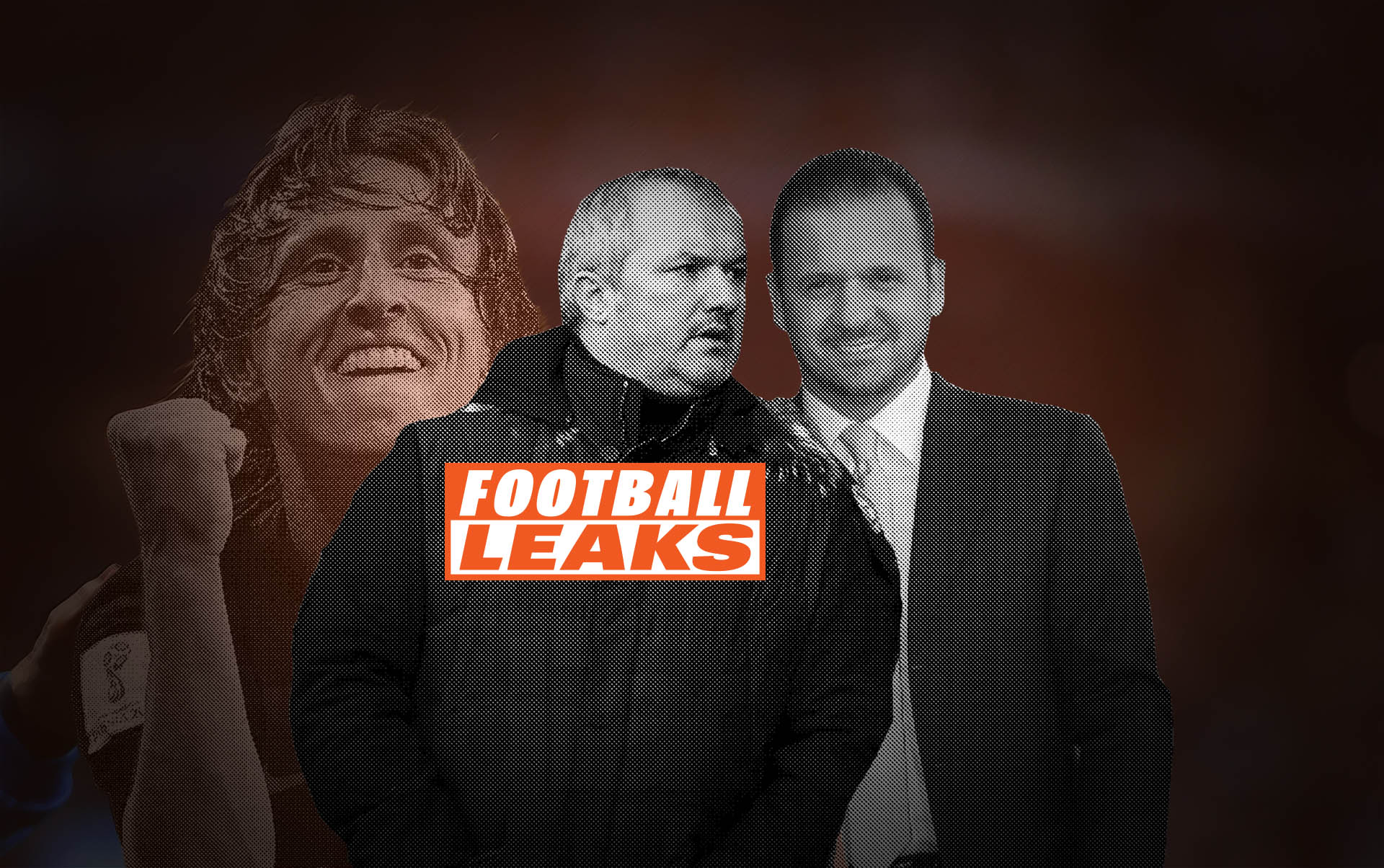

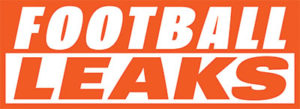
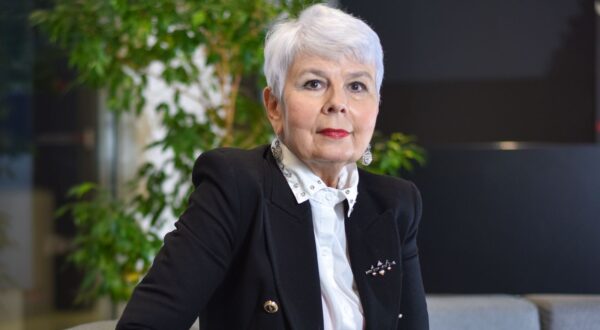
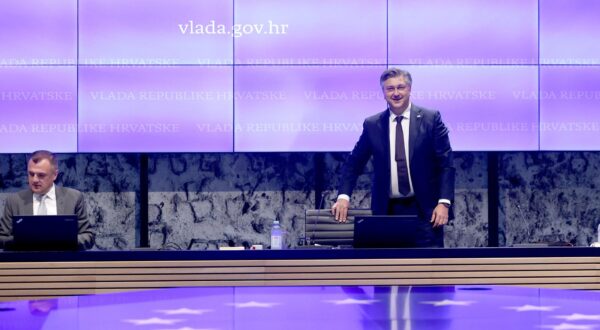
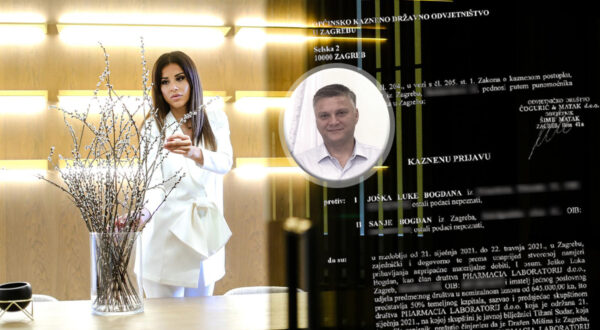
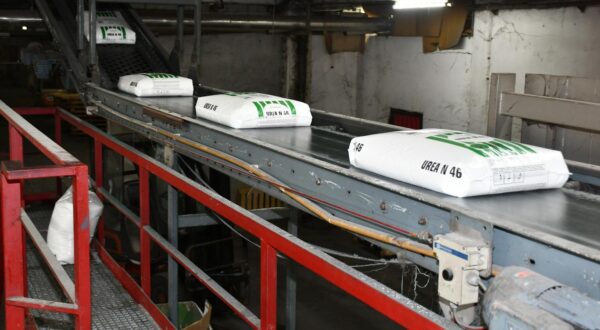
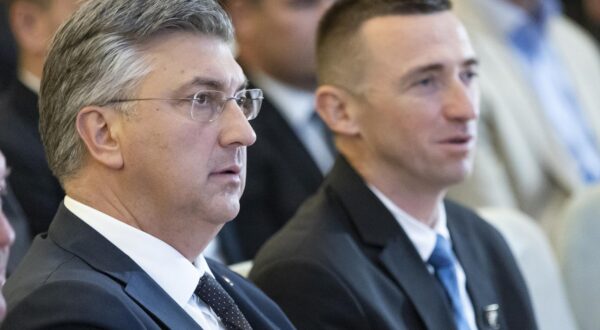
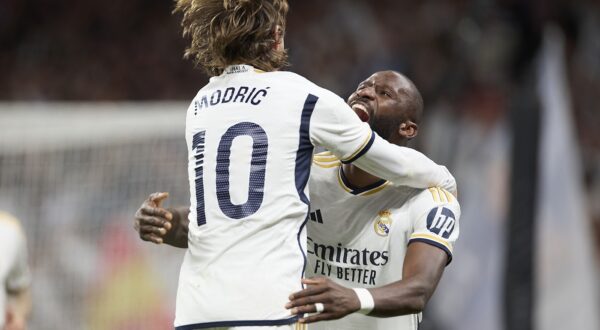


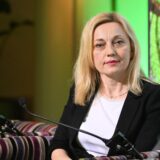



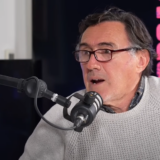

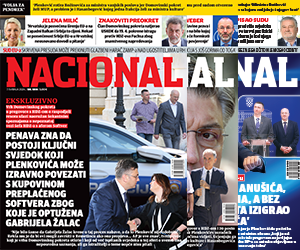















Komentari